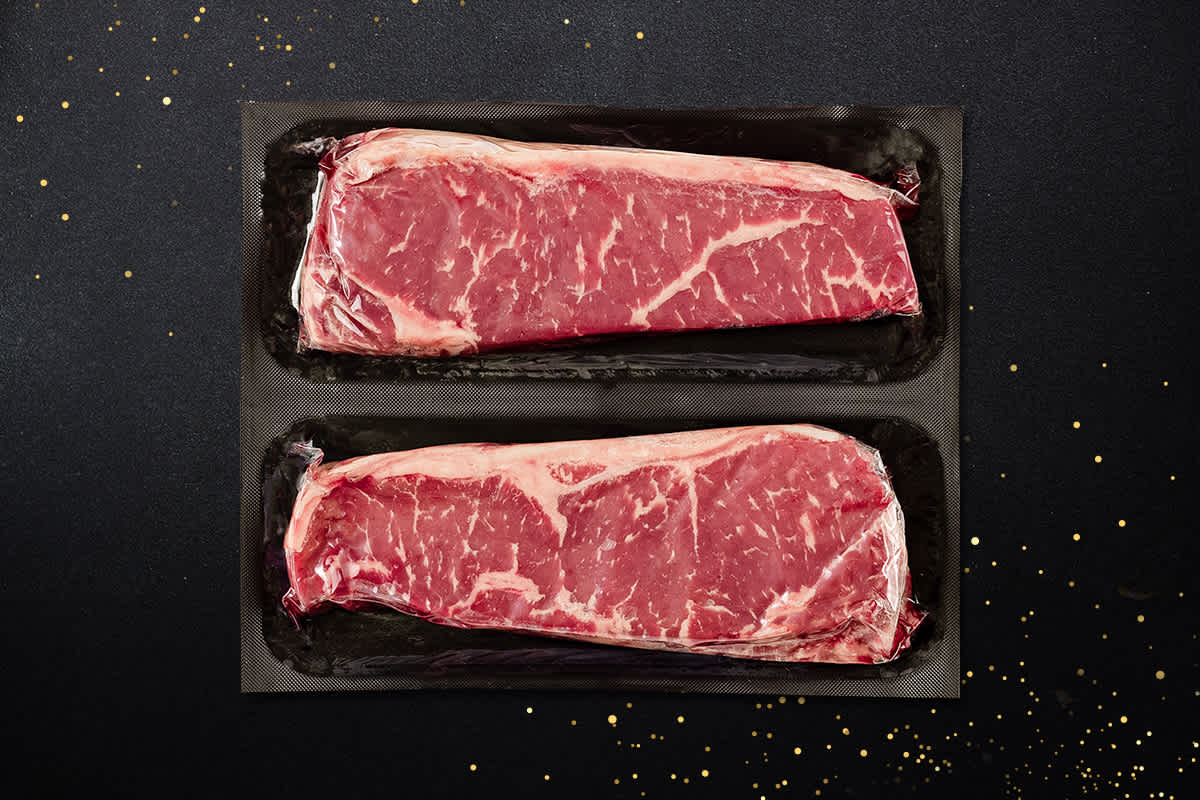You've likely heard about extreme diets, but the Lion Diet takes nutritional restriction to a whole new level. Focused solely on consuming only ruminant meats, salt, and water—nothing else. While it might sound like a radical approach to eating, this carnivore-based diet has gained traction among those seeking dramatic health transformations.
Proponents claim remarkable improvements in autoimmune conditions, metabolic function, and overall well-being. But before you dismiss it as another dietary fad, you'll want to understand the science, risks, and potential benefits that make the Lion Diet both intriguing and controversial. What could possibly drive someone to adopt such a seemingly restrictive eating plan?
The Lion Protocol: Ruminant-Only Carnivore Explained

The Lion Diet emerges as an ultra-restrictive nutritional approach that dramatically narrows food consumption to only ruminant meats, salt, and water. This extreme dietary strategy focuses exclusively on consuming meat from animals like cows, sheep, goats, bison, and deer, representing a radical departure from conventional eating patterns. Holistic healing potential suggests the diet might help individuals reset their metabolic and immune responses through extreme dietary simplification.
Rooted in the belief that ancestral human diets were primarily carnivorous, the diet aims to eliminate potential food triggers that might cause health complications.
Your dietary choices under this regimen become incredibly limited. You'll consume only meat from ruminant animals, which are characterized by their ability to chew cud, supplemented with salt and water. Organ meats are permitted to help prevent potential vitamin deficiencies that might emerge from such a restrictive eating plan. The diet also carries significant nutritional risks that could impact long-term health if not carefully managed.
While proponents suggest this diet can address various health issues, nutritionists caution that it lacks substantial clinical research. The diet's extreme nature means you should consider careful medical supervision and should consult healthcare professionals before undertaking such a significant dietary transformation.
Understanding the potential risks and limitations is essential when evaluating any radical nutritional approach.

Healing Through Ruminant Meat: Reported Benefits
Proponents of the Lion Diet claim remarkable health transformations stem from this radical nutritional approach. They argue that by consuming only beef and water, individuals can experience significant improvements in their overall wellness.

The diet's simplicity is believed to reduce inflammatory responses and possibly alleviate various chronic health conditions. Supporters suggest the diet can lead to dramatic weight loss, enhanced mental clarity, and reduced digestive issues.
The aim is by focusing solely on nutrient-dense beef, you might experience a reset of your metabolic processes. The elimination of potential allergens and inflammatory foods could contribute to improved immune function and reduced systemic inflammation.
Some individuals report increased energy levels, stabilized mood, and better sleep patterns after adopting the Lion Diet. The high protein content of beef could support muscle maintenance and growth, while the absence of processed foods possibly reduces metabolic stress.
Additional anecdotal evidence indicates possible improvements in skin health, reduced joint pain, and enhanced overall liveliness.
While these claims are compelling, it's essential to approach the Lion Diet with caution. Consulting healthcare professionals before making significant dietary changes is always recommended to guarantee nutritional adequacy and personal health safety.
The Science Behind All-Meat Healing

Dive deep into the scientific terrain surrounding the Lion Diet, and you'll discover a compelling narrative of research challenging conventional nutritional wisdom.
Harvard University's extensive 2021 survey involving 2,029 participants revealed remarkable health transformations, demonstrating significant improvements in obesity, hypertension, diabetes, and gastrointestinal symptoms. The pioneering work of Mikhaila Peterson has demonstrated that personal experimentation can lead to groundbreaking dietary insights.
The diet's scientific mechanisms focus on reducing inflammation by eliminating plant toxins and stabilizing metabolic processes. Researchers like Dr. Belinda Lennerz and Dr. David Ludwig highlighted the diet's potential to improve insulin sensitivity and gut microbiome composition.
Studies published in Cell and Metabolism have shown that very low-carb diets can profoundly impact bodily inflammation and metabolic health. Emerging research also suggests that meat-based nutritional strategies can provide unique metabolic advantages for individuals with complex health challenges.
Gut health emerges as a critical aspect of the Lion Diet's scientific narrative. By removing potential dietary irritants, the diet helps soothe digestive conditions like IBS and Crohn's disease.
The simplicity of consuming primarily ruminant meats allows the body to heal and potentially identify food triggers.
Potential therapeutic applications extend beyond digestive health, suggesting benefits for autoimmune disorders, chronic inflammatory conditions, and mental wellness. The diet's focus on nutrient-dense ruminant meats provides a targeted approach to supporting overall physiological balance.
Understanding Lion Diet Adaptation Challenges
Exploring the scientific terrain of the Lion Diet reveals potential nutritional pitfalls that demand careful evaluation.
The sustainability of such a restrictive dietary approach becomes increasingly questionable over time. Some will probably struggle with social eating situations, experience food cravings, and find long-term adherence challenging.
The potential side effects, including fatigue, headaches, and nutritional imbalances, underscore the essential need for a thorough nutritional strategy that supports your overall health and well-being.
Implementing Your Ruminant-Only Protocol
When shifting to the Lion Diet, you'll quickly realize that practical implementation requires careful planning and a strategic approach to food selection. You'll need to prioritize ruminant meats like beef, lamb, bison, and venison, focusing specifically on grass-finished options that maximize nutritional benefits.
Your meal planning will typically involve one to two meals daily, with a consistent approach of consuming high-quality meat and salt. Elimination diets can help reset the body's inflammatory responses and identify potential food intolerances. Ruminant digestive systems uniquely break down plant compounds, making their meat more nutrient-dense and easier to digest for sensitive individuals.
Sourcing becomes a critical challenge you'll face. Finding grass-finished ruminant meats might demand extra effort, and dining out will become considerably more complicated. You'll want to plan meals in advance, potentially investing in specialized meat sources or local farms that meet your dietary requirements.
Convenience for many can become a key factor, so explore alternatives like carnivore crisps or pre-prepared meat bars can help maintain dietary consistency.
Macro nutrient balance will require careful attention. Women might aim for an 80/20 fat-to-protein ratio, while men could target a 70/30 split.
You'll need to calculate protein intake based on your ideal body weight, typically consuming between 0.8-1 gram per pound. Incorporating limited organ meats alongside muscle meats guarantees allows for a more thorough nutrient profile, making your dietary approach both strategic and nutritionally dense.
Medical Oversight and Safety Considerations

Nutrition specialists warn that anecdotal success stories can't fully replace scientific research which also tends to lag behind by decades. Your body requires a diverse range of nutrients that the Lion Diet may or may not provide.
The potential side effects—including fatigue, weakness, and compromised immune function— may outweigh any perceived benefits depending on the person.
Moreover, healthcare professionals strongly advise against adopting such an extreme dietary approach without thorough medical supervision and thorough understanding of individual health needs.








